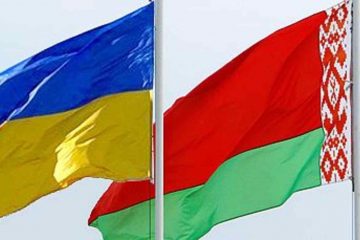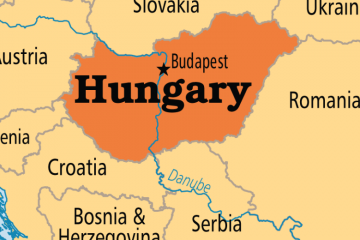The Russian communications oversight authority has put Facebook, Twitter and Google on notice. In May the agency, known by its acronym Roskomnadzor, sent a letter to the companies reminding them that they need to comply with the country’s Internet laws.
Roskomnadzor has vast powers: It can summarily order Internet service providers to shut off access to websites, as it has done with several independent news and analysis sites; it can levy fines; and it can ask the prosecutor’s office to launch criminal charges where it perceives a violation. In the case of foreign companies, it can team up with other agencies to drive them out of Russia. This is how contemporary Russian censorship works: by waving the stick of financial consequences.
Back in the Soviet Union, censorship had a straightforward structure: a centralized agency called Glavlit (Literature Directorate) had censors posted to newspapers and publishing houses. These people pre-cleared everything that was slated for publication. All periodicals and publishing houses belonged to the state then, so ultimately the editors and the censors worked for the same boss. The system worked smoothly. But now many media companies are privately owned. Enter market-based censorship.
Oversight agencies have many restrictive laws at their disposal. There is the Law for the Protection of Children from Information Harmful to their Health and Development, passed in 2010 and amended since — most notably, with the addition of a ban on “propaganda of homosexuality.” It appears to ban, basically, everything, including “the naturalistic portrayal or description in any form and by any means of a person, an animal, or parts of bodies of humans and/or animals, or of action or inaction, or event, or phenomenon, or its consequences with the concentration of attention on details, anatomical particulars, and/or physiological processes.” And that is just one article — no wonder publishers usually refer to this as the Law for the Protection of Children from Information, period.
Then there is the ban on something called “extremism.” Many surprising things can be considered extremist. Last week, for example, the prosecutor’s office in the southern Russian city of Rostov on the Don interrogated an organizer of an event called Total Dictation — an annual opportunity for Russian-speakers to test their spelling skills by taking dictation simultaneously in groups spread the world over. The dictation enthusiast, Alexei Pavlovsky, apparently came under suspicion because the prosecutor had come across the term “grammar-Nazi,” which sounded like it might be an extremist movement seeking to kill poor spellers.
In another instance, a collection of reportage by the journalist Yelena Kostyuchenko was recently published in Moscow with a number of pages that were blank save for the phrase “Political censorship” and the web address where readers could find the chapter excised from the book. It was Kostyuchenko’s report on an action by the protest art group Pussy Riot during which the women performed a song called “Putin Has Pissed Himself.” Roskomnadzor was apparently of the opinion that the lyrics were “extremist.”
But, in the absence of prior censorship, how would the publisher have known what the authorities thought of the chapter? Publishing houses and other media companies have long established the practice of asking for permission ahead of time. For example, when Russia introduced a law on “foreign agents” in 2012, the lawyers for the American-owned (and Congressionally-funded) Radio Liberty sent the Justice Ministry a letter asking if the radio station might be considered a foreign agent (I know this because I briefly became director of Radio Liberty a couple of months later). The Justice Ministry responded with a letter assuring Radio Liberty that, for technical reasons, it could not be considered a “foreign agent.” The letter could now be put in reserve as potential ammunition against future accusations.
But the lawyer’s query had, in effect, amounted to running ahead of federal agencies in enforcing the law. Publishers do the same with books, querying Roskomnadzor ahead of time in order to avoid wasting money of a print run that may have to be pulped. This amounts simply to prior censorship. It is not as orderly, but it is just as potentially effective as the Soviet system.
Censorship and laws that restrict speech and assembly serve a single purpose in a society that is restoring itself to totalitarianism: they destroy public space. In the modern world, technology-based solutions soften the blow. People retreat from the square to social networks, where they can still post slogans and talk to like-minded people, and this feels much better than the isolation they would have faced in the past.
But Facebook, Twitter and Google are not public space: they are, in fact, private companies. Even in a democracy, they are not subject to freedom-of-assembly or freedom-of-speech laws — but in Russia, they are most certainly subject to restrictive media laws, as Roskomnadzor has so helpfully reminded them.
Out of perhaps an overabundance of caution, Facebook also seems sensitive to non-legal pressure that implies a connection to the authorities. In the last couple of weeks, the network has removed posts or entirely blocked the pages of popular Russian opposition bloggers, including photographer Rustem Adagamov, who was driven into exile three years ago, and journalist Lena Klimova, who runs an online support network for LGBT teenagers. Russian bloggers say that this happens in response to a barrage of complaints that trolls paid by the Kremlin send to Facebook.
Facebook’s press office did not respond to a request for comment for this piece, but in an April 22 BuzzFeed News post about Klimova, a Facebook spokesperson said that the company’s Community Standards “prevent anyone on Facebook from degrading or shaming another private individual.”
In his May 14 Q&A session the company’s chief executive officer, Mark Zuckerberg, addressed concerns that Facebook was blocking posts from Ukrainian bloggers, saying that the posts had been removed because they contained hate speech.
Later in May, over 3,000 of people signed an online petition asking Facebook to stop what they call “political blocking” of Russian bloggers.
So Facebook appears to be considering two letters regarding its Russian operations for now: one from a large group of concerned citizens asking the company to stop caving in to pressure from the Kremlin, and another from the Russian government itself, reminding Facebook that it can lose its Russian business overnight.
It’s hard to see this as much of a dilemma.





Comments